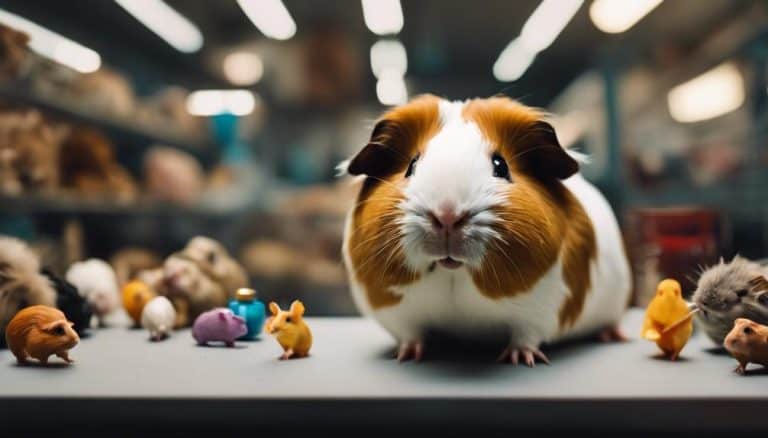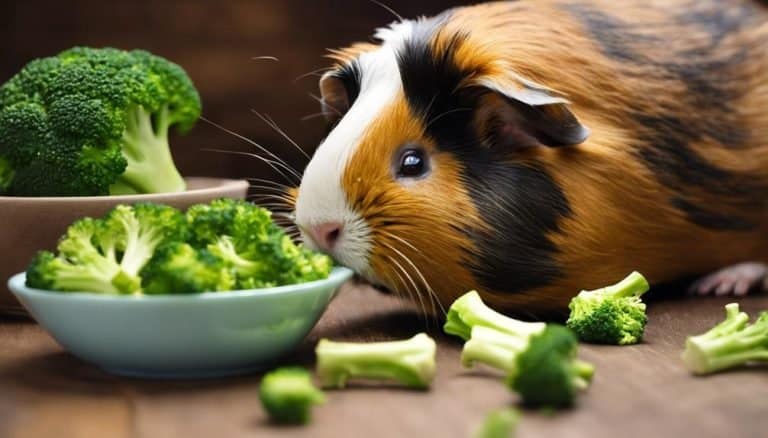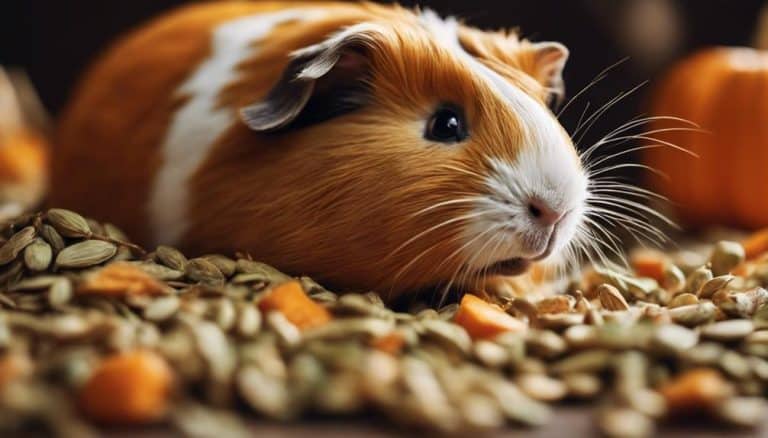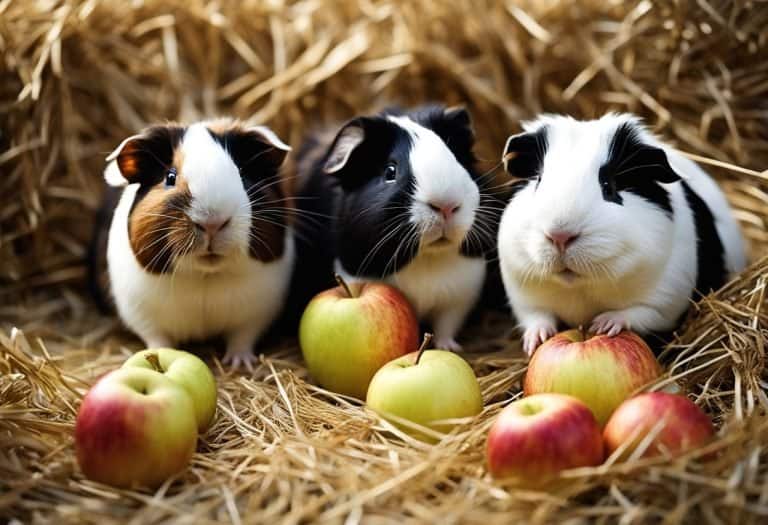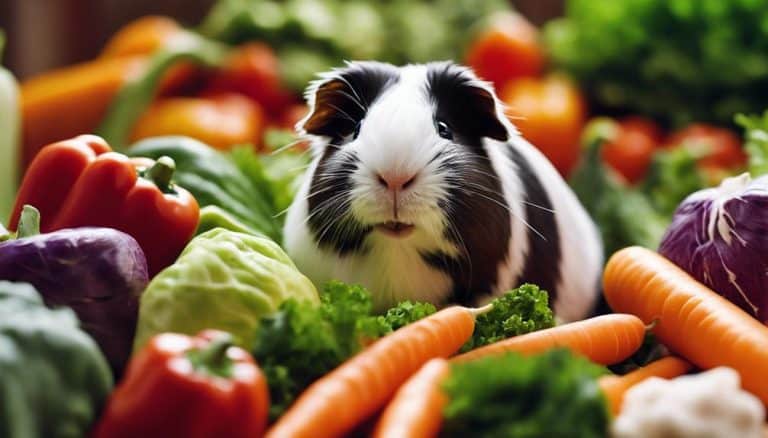Unveiling the Truth: Can Guinea Pigs Safely Drink Tap Water?
Tap water is a common staple in most households, providing a convenient and readily available source of hydration. However, when it comes to our furry friends like guinea pigs, ensuring their safety and well-being is paramount. With numerous myths circulating about the potential hazards of tap water for these small creatures, it’s important to separate fact from fiction.
In this informative article, we will delve into the truth behind whether or not guinea pigs can safely drink tap water. By examining scientific research and consulting with experts in the field, we aim to provide pet owners with an informed perspective on this matter.
So let us embark on this journey together as we uncover the truth and shed light on one of the concerns that linger in every responsible guinea pig owner’s mind – can guinea pigs safely drink tap water?
The Composition of Tap Water: Understanding the Chemical Makeup
Tap water is a mixture of various chemicals and substances that are regulated by local authorities to ensure its safety for human consumption. These chemicals include chlorine, which is added as a disinfectant to kill harmful bacteria and viruses. Chloramines may also be used in some areas instead of chlorine.
Other common additives in tap water are fluoride, which helps prevent tooth decay, and orthophosphate, which prevents pipe corrosion. Minerals like calcium and magnesium can naturally occur in tap water and contribute to its “hardness.” Additionally, trace amounts of heavy metals like lead or copper may sometimes be found due to old plumbing systems.
It’s important to note that while tap water undergoes rigorous testing to meet drinking standards for humans, these regulations do not specifically cater to the needs of guinea pigs. Therefore, other considerations must be taken into account when deciding if it is safe for them to consume tap water.
Potential Implications for Guinea Pigs
Guinea pigs have different physiology than humans and are more sensitive to certain substances present in tap water. Chlorine can irritate their respiratory system if ingested or absorbed through their skin during bathing or cleaning procedures. Fluoride levels higher than what would typically be considered safe for humans have been linked with dental issues like enamel damage in guinea pigs.
Furthermore, minerals found in hard water might accumulate over time within their organs leading toxicity risks – especially since many commercial guinea pig diets already contain adequate amounts of essential minerals needed.
Potential Contaminants: Examining the Risks for Guinea Pigs
When it comes to tap water, a key concern for guinea pig owners is the presence of potential contaminants. These contaminants can include chemicals such as chlorine or fluoride that are added to public water supplies to ensure its safety for human consumption. Unfortunately, these chemicals may not be safe in large quantities for guinea pigs.
Aside from additives, tap water can also contain other pollutants like heavy metals and microorganisms. Heavy metals such as lead or copper can enter the water supply through outdated plumbing systems and pose a threat to the health of guinea pigs when consumed over time. Microorganisms like bacteria or parasites present in untreated tap water may also cause serious illnesses in guinea pigs with weakened immune systems.
To protect your furry friend, it’s important to understand how these potential contaminants could harm them and take steps towards providing them with clean and safe drinking water.
Measures for Ensuring Safe Drinking Water
To minimize the risks posed by potential contaminants in tap water, there are several measures you can take:
- Provide filtered or purified water: Using a high-quality filter or opting for purified bottled water will remove most impurities and reduce the chances of harmful substances reaching your guinea pig.
- Let chlorinated tap water sit out: Allowing chlorinated tap water to sit uncovered for at least 24 hours before giving it to your guinea pig allows chlorine gas to evaporate, making it safer for them.
- Regularly clean bottles and bowls: Clean drinking vessels thoroughly between refills to prevent any buildup of harmful organisms that could make your guinea pig sick.
- Monitor local news alerts about contamination: Keep an eye on local news updates regarding possible issues with your area’s drinking supply so that you can take precautionary measures if necessary.
By taking these precautions, you can reduce the risk of exposing your precious pet to potentially harmful contaminants, ensuring their health and well-being.

Tap Water vs Filtered Water: Is there a Safer Option?
Tap water is the most commonly consumed type of water worldwide, but it may not always be the safest option for guinea pigs. Although tap water undergoes treatment to remove harmful substances, such as bacteria and chemicals, traces of these contaminants can still be present. Guinea pigs have delicate digestive systems that can be adversely affected by impurities in tap water.
Filtered water offers a potential solution to this problem. Filtration systems effectively remove impurities from tap water, providing a cleaner and safer drinking source for guinea pigs. By eliminating potentially harmful substances like chlorine and heavy metals, filtered water helps ensure that your furry friend stays healthy and hydrated. However, it is crucial to choose an appropriate filtration system specifically designed for removing these contaminants from drinking water.
Expert Insights: What Veterinarians Recommend for Guinea Pig Hydration
Prioritize Fresh, Clean Water
Veterinarians strongly advise providing guinea pigs with fresh and clean water on a daily basis. One of the most important things you can do to ensure your guinea pig stays hydrated is to give them access to unlimited amounts of freshwater throughout the day. Regularly changing the water in their bottle or dish will help maintain its freshness and prevent bacterial growth.
Consider Using Filtered or Bottled Water
While tap water is generally safe for human consumption, some veterinarians suggest using filtered or bottled water for guinea pigs, especially if your local tap water contains high levels of impurities like chlorine or heavy metals. These substances can potentially harm your small pets over time. Filtering tap water or opting for purified alternatives can provide an extra layer of protection and peace of mind.
Monitor Drinking Behavior
Observe your guinea pig’s drinking habits closely since any sudden changes could indicate dehydration or underlying health issues. It is essential to consult with a veterinarian if you notice decreased hydration signs, such as decreased urine output, dry mouth, sunken eyes, lethargy, weight loss, or reduced appetite. Early detection and prompt intervention are crucial when it comes to maintaining optimal hydration levels in our furry friends.


